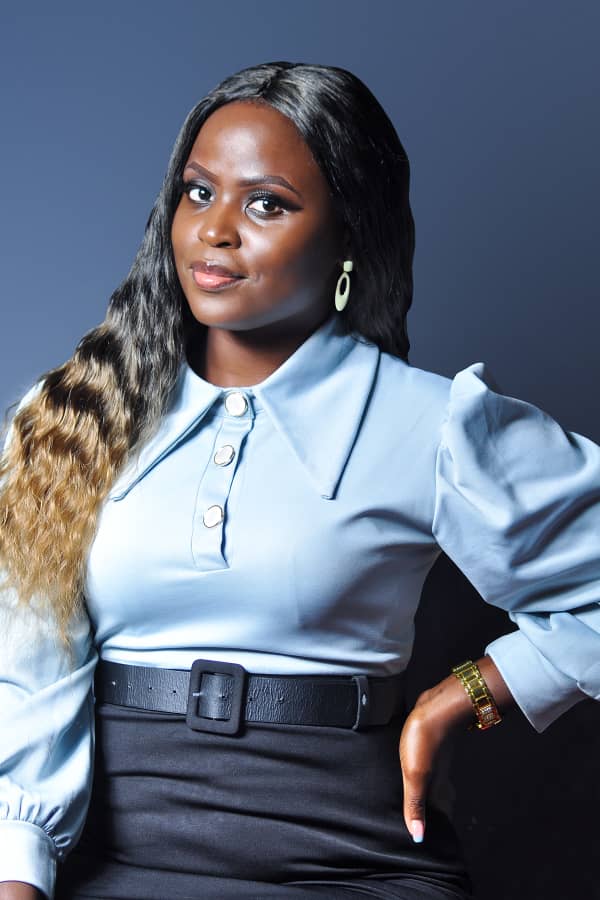Prime
I wanted to marry an Indian until I met Doreen

Despite their cultural differences, the couple say love has conquers all. Photo / Courtesy
What you need to know:
- Nitin Bhagwani admits that when he first agreed to meet Doreen, he did not have marriage on his mind. However, he loved what he saw and the two embarked on a journey of an intercultural marriage that has thrived despite the odds.
Doreen Namugenyi Bhagwani, a Muganda from Buleemezi, met her husband Nitin Bhagwani, an Indian native on Facebook in 2010.
“We used to chat a lot as friends but one day we planned our first meeting. Little did I know that I was about to meet the love of my life,” recounts Doreen.
Then, Nitin worked in Bukoto, Kampala, where he owned a bar and restaurant while Doreen was a student at Kampala International University.
“Growing up, I never imagined marrying someone from a totally different culture until 2007 when I came to Uganda,” Nitin says, adding that even when he agreed to meet Doreen, he was just trying to learn more about the dating dynamics in Uganda.
So what changed his mind?
“Doreen had a pure heart. She was outgoing, respectful, jolly and loved family. These qualities overrode the fact that she was not Indian and I wanted her for keeps,” he reveals.
Doreen, on the other hand, had always told her mother that she would marry a white man. When she met Nitin, she realised that he was the ideal spouse she had been searching for.
“My husband is a straight-forward person, humble, handsome and a good listener,” she says.
Telling family
After nearly a year of dating, the love birds decided to break the news to their respective families. After this and away from the lavish engagement parties held nowadays, Nitin just talked about marriage with his then fiancé and they started the preparations.
Since Doreen was still studying, telling her parents that she was getting married was hard. “I was in my last semester at University and was afraid to tell my parents, so I asked God for courage. When I finally told them, my mother was very excited but my father remained skeptical,” she says.
However, Nitin’s visit to her home changed their perspective of him. He was respectful and humble and her father was totally impressed.
Nitin also planned a visit with his soon-to-be wife to his family in India. Namugenyi was nervous, mostly because she did not know what to expect, given the cultural differences.
“Luckily, I met warm and loving people who made sure that I fit in by communicating with me in English. So, there was no language barrier, which usually breaks an intercultural partnership even before it starts,” she shares.
“I recall one of my cousins congratulating me on making a good choice for a partner largely because she was so free with them and easily integrated into the family,” Bhagwani recalls.

Marriage
On October 11,2011 Doreen introduced Nitin in Ggaba, a Kampala suburb, just a week before her graduation. The cultural differences and expectations amazed Bhagwani.
“I found it strange to organise meetings for a woman that is meant for me including the items I was expected to deliver. Luckily, my wife was very helpful in ensuring I did not get overwhelmed especially since my business was just starting to pick up,” he shares, adding that in all, he spent close to Shs7m.
Doreen’s most memorable moment was when her husband cried while giving her the engagement ring. Most notably, to give tribute to the Indian culture, Namugenyi’s senga prepared special Indian cuisine for Nitin, which he enjoyed very much.
The couple had two wedding ceremonies; one held in India and another in Uganda at a cost of Shs50m.
“My wedding ceremony in India happened on April 13 2014 and was only witnessed by my father, mother and cousin at a hotel venue in company of my husband’s friends and family,” Doreen says, adding that there, weddings are conducted by a Hindu priest outside the temple only during night hours where a couple is required to carry out several traditional ceremonies and practices.
“My dress and accessories were uncomfortably heavy as I wore a 10kg dress accessorised with multiple jewellery pieces which cost me about Shs5m.
Doreen then had to consent to the new culture where she and her groom had to walk around a fireplace carrying a coconut wrapped in a scarf around their necks.
“I am not a rigid person but I found some practices rather inconveniencing. For example, walking around the fire place in this heavy dress was not easy. Also, we were only allowed to remove the coconut the following day since it has to be broken at the entrance of our home.
“After the Indian ceremony, my father requested us to conduct another wedding in the traditional church, which my husband respectfully considered,” Doreen narrates.
Eventually, the couple wedded on May 25, 2014 at St. John’s Church in Kawuku, Kampala.
For better, for worse
On October 29, 2017, Namugenyi was involved in a boda boda accident on Entebbe road.
“I was coming from work when a taxi collided with the boda boda I was travelling on and I broke my left leg,” she narrates.
She was rushed to Nsambya Hospital were the doctors opted to amputate her leg. “My husband and in-laws were very supportive. They flew me to India for treatment which was costly,” Doreen recalls.
On complete recovery, the couple returned to Uganda and added another bundle of joy to their family, a bouncing baby boy. Today, they live happily and forever thankful to God for giving them a chance to love and be loved.
Making it work
The couple acknowledges that their rough moments have tested them for better days and believe that love wins, regardless of cultural differences.
According to Nitin, couples should communicate more to resolve differences and be patient with each other. “Spending time and enjoying the moment eliminates drifting apart as a couple,” he says.
“My husband and I reached a middle ground where we go to church while in Uganda and the temple while in India,” Doreen says.
She also advices couples to be open, faithful to each other and let God take the lead in their relationships.




